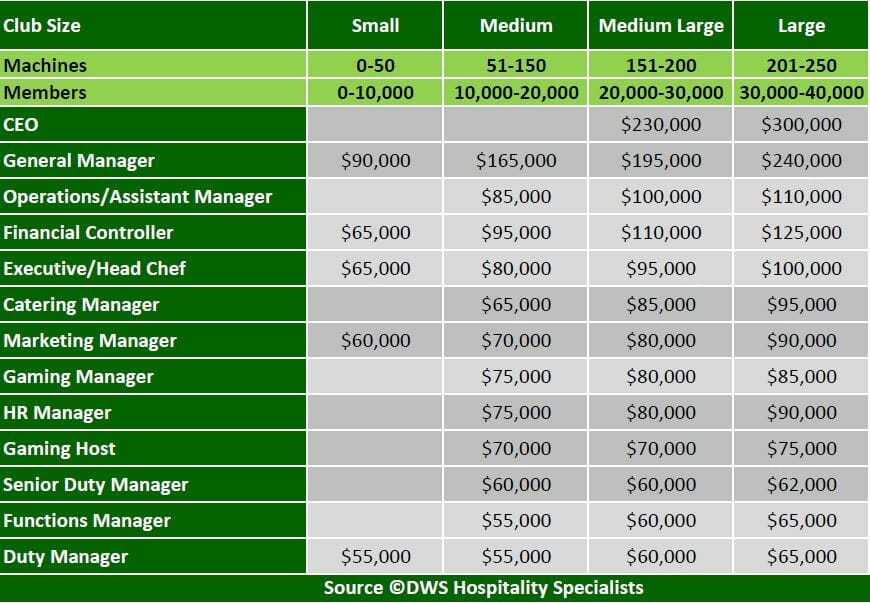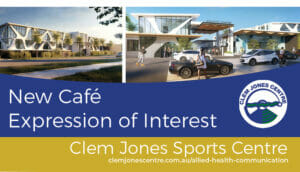To say that it has softened in the last couple of years would be an understatement. Looking back at the five-year figures, management salaries have not kept pace with inflation, effectively meaning manager’s salaries have been reduced in relative
terms. However, with few exceptions, mainly in the IT and technology space, there have not been significant increases in the last five years in most industries. While we are at times advised of salary growth from governments, they are so broad in context they are of little value when establishing possible club benchmarks.
The significant improvement in the quality of standards and services in many of our more progressive Clubs, is now requiring an increased level of management expertise in a range of areas.
I mentioned in the editorial of our September 2020 email newsletter my concerns for the prosperity of the hospitality industry and particularly clubs, which I’m sure will have a further dampening of remuneration expectations. On the positive side,
as many businesses have taken the opportunity to reengineer their employment strategies, particularly in cases of downsizing or outsourcing, this may create an opportunity for the club industry to attract some highly qualified recruits particularly in the HR, marketing and accounting areas.
As we go into 2021 and beyond, regrettably many hospitality establishments will not survive and those
that do, including clubs, will need to ensure they have a grand final team with the best people they can find, who are fairly and adequately rewarded.
As I got around the state recently it was amazing to see the number of senior and middle management staff in particular, who were filling a diverse range of roles to assist in reducing operational costs and filling labour gaps of some staff who weren’t returning to work whilst on JobKeeper. It’s a reminder that great people work everywhere in our club and many of their talents are largely unknown; some of the best chefs on MasterChef have come from a whole range of career backgrounds.
As many commercial businesses have now discovered that staff can be equally if not more efficient working from home and reduce their stressful travel time in our larger suburbs and cities, so too maybe we can make work more exciting and interesting by giving people an opportunity to learn different skills and create a pool of flexible talent in our venues. How much more excited would our staff be in this environment? It would surely have benefits in the enjoyment and pleasure of spending time in a club.
2019/20 Average Salaries for the QLD Club Industry
The salary averages table is generated from industry surveys, salaries for new management recruited positions, numerous club salary reviews and management restructure over the last 24 months, as well as our own empirical evidence. It indicates the various salary averages paid in clubs of varying sizes. Whilst these averages should not be taken in isolation from a club’s own situation, it does provide a general guide.
 * This survey endeavours to gross up the total value of salary packages including superannuation motor vehicle and other allowances as accurately as possible.
* This survey endeavours to gross up the total value of salary packages including superannuation motor vehicle and other allowances as accurately as possible.
* This table should be read in conjunction with the DWS 2020 recruitment and remuneration report.
Facts relevant to individual clubs that should be considered are KPIs (Key Performance Indicators), strategic achievements, profitable performance, additional management (such as sporting teams, other venues or other commercial interests), qualification and experience of a candidate, and the needs of the club.
Many regional clubs are also finding that they must pay a premium, particularly to get highly skilled staff to relocate.
One of the key attributes going forward will be the ability of managers to innovate and drive the club’s business in what could be a very difficult financial market running up to the opening of the new casino, which will create its own challenges for clubs to be
innovative and competitive.
Click here to read the full report and analysis.




